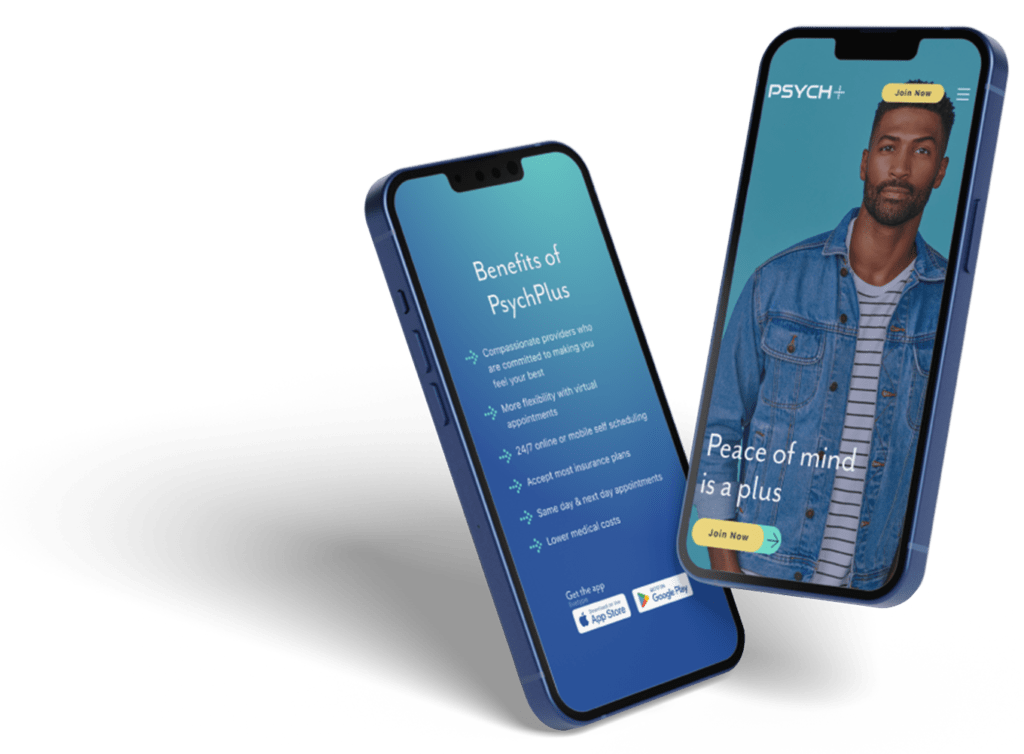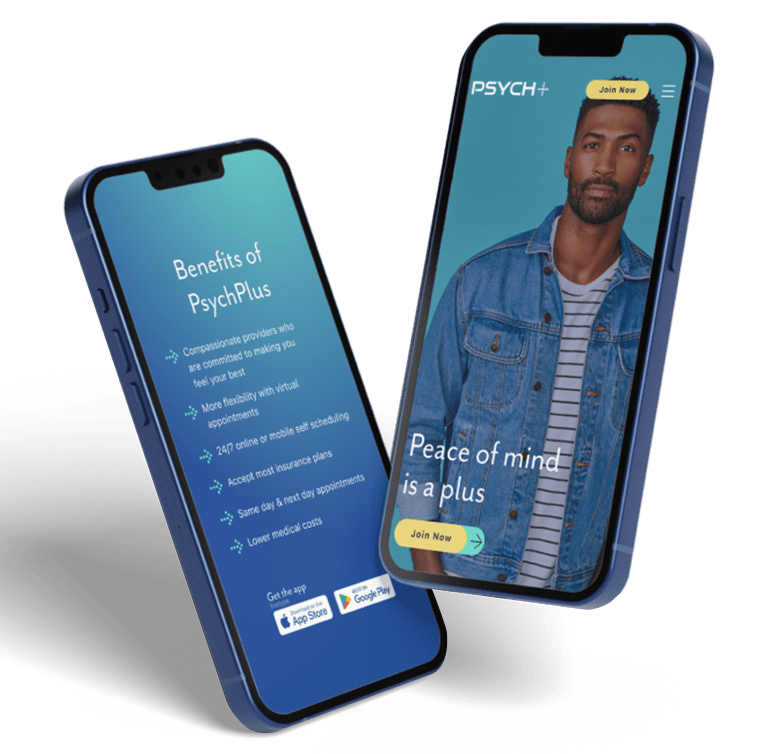Bipolar Psychiatrist in Houston
Your path to healing begins with our trusted psychiatrist in Texas, where compassion meets expertise. Empowering minds, healing hearts.
Find Expert Support for Bipolar Disorder in Humble
Empower Your Journey: Humble’s Trusted Bipolar Specialist
Your Path to Stability Starts Here: Humble’s Bipolar Psychiatrist
Humble’s Solution for Bipolar Care: Expertise at Your Fingertips

At PsychPlus, we recognize the obstacles faced by individuals with bipolar disorder, and we’re poised to offer specialized assistance to guide you through this intricate ailment.
Bipolar Psychiatrist in Humble: Expert Help Within Reach
At PsychPlus, we recognize the obstacles faced by individuals with bipolar disorder, and we’re poised to offer specialized assistance to guide you through this intricate ailment.


Why Choose PsychPlus for Bipolar Disorder Care
At PsychPlus, we recognize the obstacles faced by individuals with bipolar disorder, and we’re poised to offer specialized assistance to guide you through this intricate ailment. Our cadre of committed, board-certified psychiatrists is dedicated to crafting customized treatment strategies that cater to the distinct requirements of every patient.

Specialized Proficiency
Our psychiatrists in Houston stand out due to their profound experience in diagnosing and addressing bipolar disorder. They consistently update their knowledge, ensuring you benefit from the latest, most potent, and scientifically-backed interventions.

Tailored Care
We champion a bespoke approach to bipolar disorder management. Our psychiatrists engage intensively with you to sketch a treatment blueprint adjusted to your particular symptoms, triggers, and aspirations. Guiding you towards stability and wellness remains our foremost concern.

Advanced Therapeutic Methods
Within the precincts of PsychPlus, our allegiance is towards proffering the most recent treatment alternatives for bipolar disorder. Be it medication protocols, psychotherapeutic sessions, or pioneering therapies, we harness an all-encompassing array of methodologies to aid you in controlling your ailment efficiently.

Nurturing Ambiance
PsychPlus serves as a sanctuary where you can candidly articulate your experiences with bipolar disorder, shielded from prejudices. We grasp the criticality of a bolstering and unbiased milieu when it comes to psychiatric care.
Procrastination should not be an option when it concerns superior bipolar disorder support you rightfully need. Reach out to PsychPlus now to delve deeper or fix an engagement with one of our premier bipolar psychiatrist in Houston. Your journey towards equilibrium and a gratifying existence initiates here.
Most Insurances Accepted


Benefits of PsychPlus
Compassionate providers who are committed
to making you feel your best
More flexibility with virtual appointments
24/7 online or mobile self scheduling
Accept most insurance plans
Same day & next day appointments
Lower medical costs


Help reimagine access to modern and accessible mental healthcare.

Types of Bipolar Disorder
Bipolar disorder manifests in various forms. Bipolar I disorder is the most severe, characterized by week-long manic episodes and at least two weeks of depression. On the other hand, bipolar II disorder entails milder hypomanic episodes and major depressive episodes. Cyclothymic disorder involves chronic mood instability without meeting full manic or depressive episode criteria. Other specified and unspecified bipolar disorders do not fit into the aforementioned categories. Accurate diagnosis is crucial for developing effective treatment plans involving medication, therapy, and lifestyle changes.

Symptoms of Bipolar I
Bipolar I is characterized by extreme mood swings, with episodes of mania and depression. During mania, individuals experience an elevated mood, decreased need for sleep, racing thoughts, and impulsive behavior. On the other hand, depression brings feelings of sadness, hopelessness, and loss of interest in activities. It’s important to consult a qualified psychiatrist or mental health professional for diagnosis and treatment. Effective treatment may involve medication, therapy, and behavioral health services.

Symptoms of Bipolar II
Bipolar II disorder is a mood disorder characterized by cycles of depressive episodes and hypomanic episodes. Depressive episodes involve feelings of sadness, hopelessness, and loss of interest in activities. Hypomanic episodes, on the other hand, bring about an elevated mood, increased energy, and impulsivity. It is essential to differentiate between Bipolar II and major depressive disorder because misdiagnosis can lead to ineffective treatment. Seeking expert bipolar therapy from experienced Houston psychiatrists can help individuals manage their symptoms and improve their quality of life.

Symptoms of Cyclothymic Disorder
Cyclothymic disorder, a psychiatric condition, is characterized by extreme mood swings between periods of hypomania and mild depression. Individuals with cyclothymic disorder experience fluctuating energy levels, impulsivity, and changes in sleep patterns. While these symptoms are not as severe as those of bipolar I or II disorders, they can still significantly impact daily functioning and overall well-being. Seeking treatment from experienced clinicians and participating in a comprehensive behavioral health program can help individuals manage their symptoms and lead fulfilling lives.
The Spectrum of Bipolar Disorders: Mania to Hypomania
Understanding the spectrum of bipolar disorders involves recognizing different levels of intensity, ranging from mania to hypomania. Each point on this spectrum has distinct characteristics and symptoms. Mania is characterized by extreme mood swings, elevated mood, increased energy, and impulsive behavior. Hypomania, on the other hand, is a lesser extent of mania, with milder symptoms that still impact daily functioning. Identifying these symptoms is crucial for proper diagnosis and effective treatment in the field of psychiatry.
Differentiating between Mania and Hypomania
Differentiating between mania and hypomania involves understanding their key features, duration, and severity of symptoms. It’s important to recognize their impact on relationships and work, as well as the potential risks and consequences. Treatment options for both include personalized psychiatry, therapy programs, and medication such as anticonvulsants. Behavioral health services can provide support for managing extreme mood swings and behavioral health problems. By identifying and addressing these different types of bipolar disorder, clinicians can help individuals at higher risk receive the necessary treatment.
How is Bipolar Disorder Linked with Schizophrenia?
Examining the connection between bipolar disorder and schizophrenia, including shared genetic and environmental factors. Understanding overlapping symptoms and diagnostic challenges, highlighting the importance of accurate diagnosis given the prevalence of comorbidity.
A Closer Look at the Comorbidity of Bipolar and Schizophrenia
Understanding the co-occurrence of bipolar disorder and schizophrenia allows for a deeper insight into the complexities of dual diagnoses. Although they are distinct psychiatric conditions, they often share overlapping symptoms and genetic factors. This comorbidity poses challenges for treatment approaches, requiring specialized care tailored to individual needs. Advances in research have shed light on the importance of accurate diagnosis and the development of targeted interventions. By recognizing the intricate relationship between bipolar disorder and schizophrenia, clinicians can provide effective behavioral health services to those at higher risk.
























